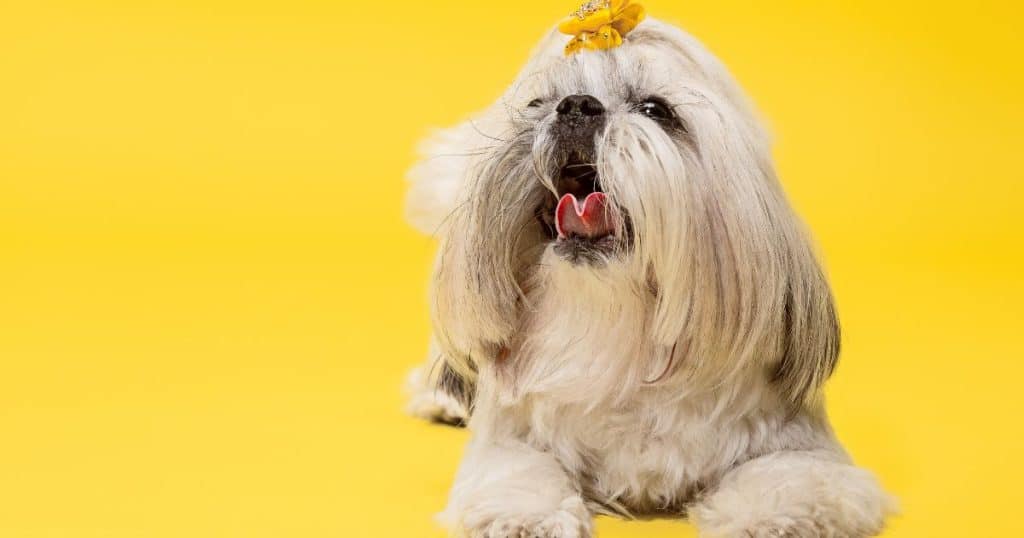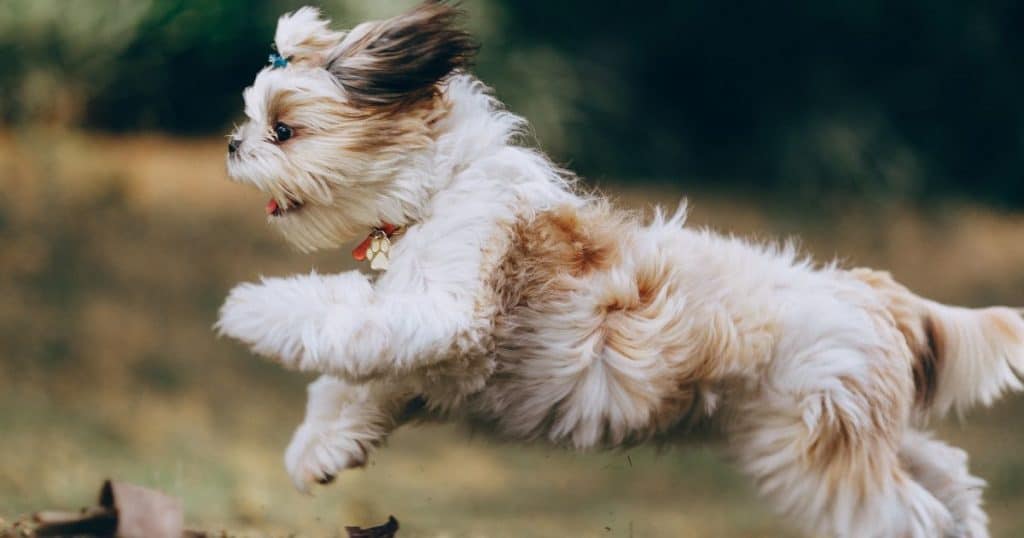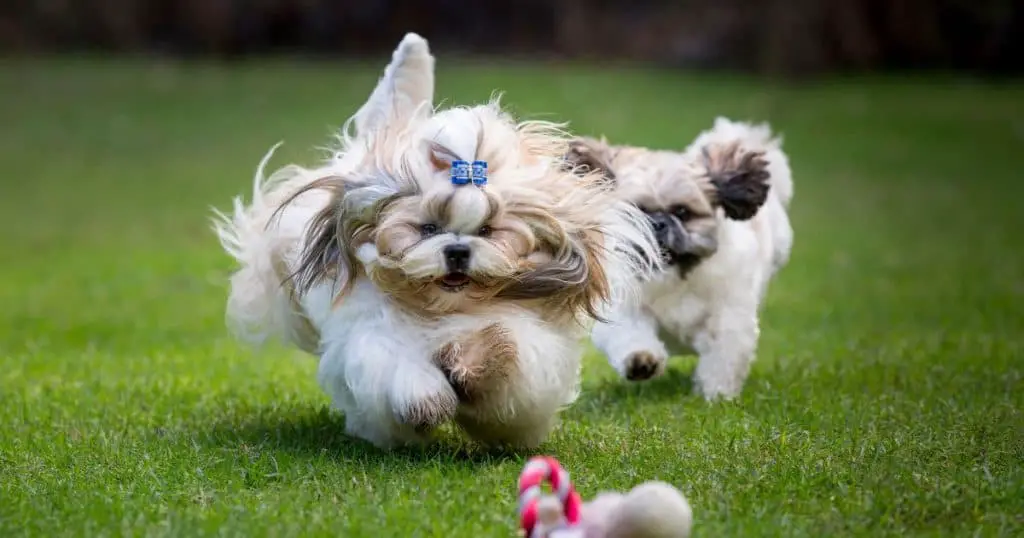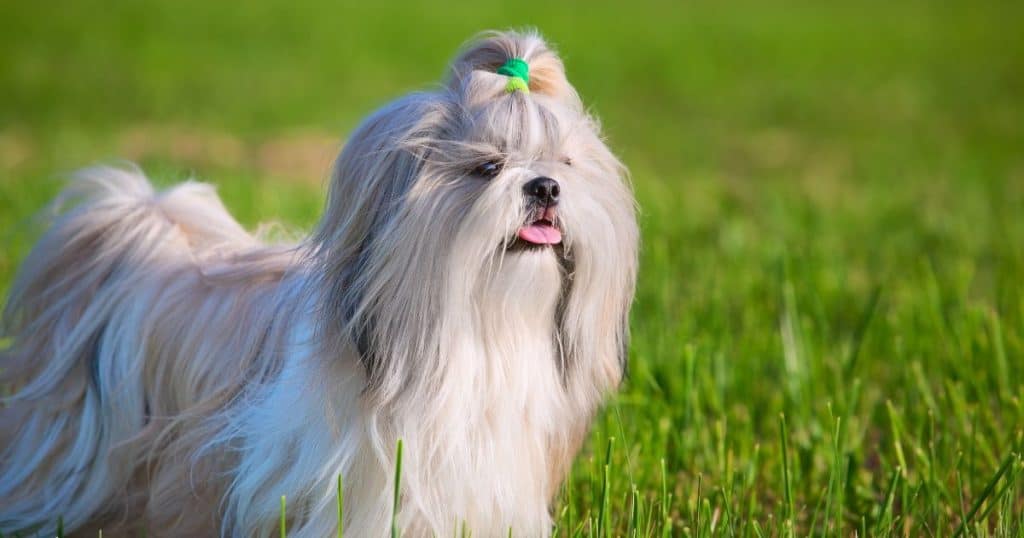What to Know
Shih Tzus are known for their affectionate and friendly nature, making them a popular choice among dog lovers. These small, toy-sized dogs possess a unique combination of characteristics that set them apart from other breeds. As a proud Shih Tzu owner, I can attest to their special qualities, which include their well-rounded personalities and natural confidence. With their charming demeanor, these dogs are often described as loveable and trusting companions.
Although they are independent, Shih Tzus still crave human attention, making them prone to becoming spoiled if indulged too much. They hail from a storied history, having originated in Tibet, where they were kept as cherished lapdogs by Chinese royalty. Today, Shih Tzus continue to be highly sought-after pets across the globe, due to their sweet nature and adaptability to various living situations.
It is important to understand the Shih Tzu temperament in order to effectively care for one of these delightful dogs. Knowing more about their personality can help potential owners provide the right environment, training, and socialization necessary for a happy and healthy Shih Tzu.
Key Takeaways
- Shih Tzus are known for their affectionate, friendly, and well-rounded personalities.
- These toy-sized dogs can be independent but also crave human attention, making it important to provide proper care and training.
- Understanding the Shih Tzu temperament is crucial for potential owners to ensure a happy and healthy pet.
History of the Shih Tzu

The Shih Tzu is an ancient dog breed with a rich history that traces back to China and Tibet. These toy-sized dogs were highly prized by Chinese emperors and their royal families, who relished the breed’s beauty and delightful temperament. Bred within the walls of the Forbidden City, the Shih Tzu enjoyed its place in Chinese royalty’s hearts and homes for centuries.
It is believed that this breed was created by Tibetan lamas as a tiny replica of a lion, which holds spiritual significance in Buddhist culture. The Chinese emperors admired the Shih Tzu’s unique characteristics and began a breeding program to further refine the breed. The Shih Tzu’s lineage can be traced back to the Asiatic breeds such as the Lhasa Apso and Pekingese. These dogs were treasured as royal lap warmers and palace pets.
One of the most fascinating aspects of the Shih Tzu’s history involves the story of how they eventually made their way out of China. For many years, Chinese royalty had strict rules against exporting these valued dogs. In the early 20th century, several Shih Tzus were gifted to members of the British and Dutch nobility. These diplomats returned to Europe with their precious companions, introducing the breed to the Western world.
The Shih Tzu’s popularity grew outside of China, particularly in the United States, where the breed was recognized by the American Kennel Club (AKC) in 1969. Today, the Shih Tzu is a beloved family pet and show dog, known for its charming personality and beautiful, flowing coat.
The history of the Shih Tzu is a testament to the breed’s enduring appeal and their lasting impact on dog enthusiasts across the globe. As more people continue to discover and cherish the many wonderful qualities of the Shih Tzu, their storied past will remain an essential part of the breed’s unique charm.
Physical Characteristics

Weight and Height
As a small dog breed, the Shih Tzu is quite compact in size. Males and females have a similar height, typically standing around 8 to 11 inches tall at the withers. When it comes to weight, both males and females usually range from 9 to 16 pounds. Due to their relatively small size, Shih Tzu dogs are often considered ideal companions for those living in apartments or smaller spaces.
Double Coat
One of the most distinctive features of the Shih Tzu is its luxurious double coat. This type of coat consists of two layers: a dense, soft undercoat and a longer, silky topcoat. The double coat serves to protect the dog from various weather conditions and can keep them warm in colder temperatures. However, this coat type also requires regular grooming to avoid matting and tangles.
Keeping their coat in good shape is essential as Shih Tzus are prone to skin sensitivities. Regular brushing helps remove loose hair and prevents mats from forming. It’s important to note that some owners choose to keep their Shih Tzu’s coat trimmed short, also known as a “puppy cut,” to make grooming more manageable.
Color
The Shih Tzu’s coat can come in a wide variety of colors and combinations, making each dog unique in appearance. Common colors include black, white, blue, gold, liver, and many more. The breed standard allows for any coat color, so don’t be surprised to come across a Shih Tzu with a truly one-of-a-kind look.
In conclusion, the Shih Tzu’s physical characteristics include its small size, luxurious double coat, and the wide array of coat colors. These distinctive features contribute to the breed’s charming appearance and appeal, making them a popular choice for pet owners. With proper care and grooming of their double coat, a well-maintained Shih Tzu can be a delightful companion for many years.
Shih Tzu Temperament

Key Personality Traits
As a Shih Tzu owner, I can attest to the fact that these little dogs have a delightful and endearing temperament. They are known for being playful, loyal, and friendly. This breed is also quite affectionate, with a sweet and loving demeanor that will melt your heart. Shih Tzu puppies are particularly cute and are known to mature quickly, reaching adult size in around 10 months.
While Shih Tzus are generally well-behaved, they can sometimes have a stubborn streak. This can become apparent when you’re trying to train them or when they’re exploring their surroundings. Nevertheless, their lively personalities make them great companions for both single owners and families.
Key personality traits of Shih Tzus include:
- Playful
- Loyal
- Friendly
- Affectionate
- Sometimes stubborn
- Lively
Common Behavioral Issues
Despite their adorable appearance and many positive qualities, Shih Tzus can still have some common behavioral issues. One such issue is barking. Shih Tzus can be quite vocal, barking at visitors, other pets, or even just at random noises. While this may not be a problem for some owners, it can be an annoyance for others, especially if you live in an apartment with close neighbors.
Another common issue for Shih Tzus is digging. They have a moderate tendency to dig, which can lead to unsightly holes in your yard or flower beds. Be sure to provide appropriate toys and activities to keep your Shih Tzu occupied and address this behavior through positive reinforcement and redirection.
Finally, some Shih Tzus may display separation anxiety. This is more common in dogs who haven’t been socialized properly or in those who have formed an over-dependency on their owners. If you experience this issue, gradual desensitization and consistent training can help alleviate their anxiety.
Common behavioral issues in Shih Tzus:
- Barking
- Digging
- Separation anxiety
In summary, the Shih Tzu temperament encompasses a range of endearing traits, such as playfulness, loyalty, and friendliness. However, some common behavioral issues can occur, including excessive barking, digging, and separation anxiety. Addressing these issues with proper training and socialization can lead to a well-behaved and delightful companion that any dog lover would be proud to own.
Health and Care

Grooming Requirements
As a Shih Tzu owner, one of my top priorities is their grooming needs. Shih Tzus have a long, luxurious double coat that requires regular care to keep them looking and feeling their best. Ideally, you should brush your Shih Tzu’s coat daily to prevent matting and keep loose hair under control since they are a low-shedding breed. Regular baths and professional grooming every 4-6 weeks are also necessary to maintain their coat’s health and appearance.
Common Health Issues
Despite being an overall healthy breed with a life span of 10-18 years, Shih Tzus can still be prone to certain health problems. Some of the more common issues include eye and skin problems, which should be closely monitored. Regular visits to the veterinarian and proper care can help catch and treat these conditions early, ensuring a long and healthy life for your beloved pet.
Exercise Needs
Shih Tzus are not a high-energy breed, but they still need their daily dose of exercise to maintain a healthy weight and prevent boredom. In my experience, short daily walks of 20-30 minutes, along with some indoor playtime, are typically enough to keep them happy and fit. Keep in mind that Shih Tzus can be sensitive to heat, so avoid exercising them during the hottest parts of the day. In the same vein, I found that enrolling my Shih Tzu in obedience classes and providing socialization opportunities helped keep their minds active and well-rounded.
By understanding and addressing the specific needs of a Shih Tzu, you’ll be able to provide the best possible care for your furry companion. Whether it’s grooming, healthcare, or exercise, taking the necessary steps will ensure that your pet remains happy, healthy, and an essential part of your family for years to come.
Shih Tzu’s Interactions with Others

Considerations for Families with Children
As a toy breed, Shih Tzus can be a great addition to families with children, but there are a few important factors to consider. These dogs are known for their gentle and affectionate temperament. However, their small size makes them vulnerable to accidental injury from rough play or being stepped on. Therefore, it’s essential to teach children how to handle and interact with a Shih Tzu properly. As a hypoallergenic dog breed, Shih Tzus can be suitable for households with allergy sufferers, making them an appealing choice for many families.
Interactions with Other Dogs
Shih Tzus are generally friendly with other dogs and can peacefully coexist in a multi-pet household. However, they may exhibit a tendency to be more dominant or assertive with larger breeds in an attempt to compensate for their small size. To ensure harmonious interactions, it’s crucial to socialize your Shih Tzu early on, exposing them to various environments, dog breeds, and situations. Toy breeds like Pekingese and other Shih Tzus often make good playmates for this breed.
Shih Tzu as a Companion Dog
Regarded as a companion dog and lap dog, Shih Tzus are well-suited for individuals seeking a loyal and friendly pet. As a Shih Tzu pet parent, you’ll appreciate their outgoing and playful nature, making them a delightful presence in your home. Additionally, their calm and gentle temperament helps ease any concerns you may have about their interactions with children or other dogs.
While not considered watchdogs, Shih Tzus may exhibit some protective instincts, such as barking, when they sense a potential threat to their household. However, their primary role in a family setting remains that of a loving and affectionate companion.
Shih Tzus thrive in various living conditions but prefer to spend most of their time indoors, as their breed history as a pet for Chinese royalty suggests. They enjoy cuddling and being close to their owners, making them an ideal pet for those seeking a furry friend to keep them company.
As a toy breed, Shih Tzus require relatively low exercise, making them suitable for people living in apartments or with limited outdoor access. However, it’s crucial to keep them engaged mentally and physically to maintain their overall health and happiness.
In conclusion, when considering a Shih Tzu as a family pet or companion, it’s essential to weigh the various factors surrounding their temperament, interactions, and unique breed characteristics. By understanding their needs and providing appropriate care, you can ensure a happy and harmonious relationship with your Shih Tzu.
Breed Recognition and Standards

As a Shih Tzu enthusiast, I find it essential to discuss breed recognition and standards. This section will cover Recognition from Kennel Clubs and Breed Standards Set by England and AKC.
Recognition from Kennel Clubs
Shih Tzu is a popular dog breed recognized by prominent kennel clubs around the world. The American Kennel Club (AKC) and The Kennel Club in England are two such organizations that officially acknowledge the Shih Tzu breed. These kennel clubs not only recognize the breed but also advocate for responsible breeding, helping to maintain consistency and quality.
Breed Standards Set by England and AKC
Breed standards are essential to preserving the true essence and temperament of the Shih Tzu dog. Both the AKC and The Kennel Club in England have set breed standards that breeders must follow. These guidelines furnish the requirements necessary for maintaining the quality and consistency of the Shih Tzu.
The AKC breed standard outlines the Shih Tzu as a sturdy, lively, and alert toy dog with a long-flowing double coat. This breed standard describes the Shih Tzu’s appearance, including its head, muzzle, and body proportions. It also highlights the distinctive “chrysanthemum-like” effect of the hair on the Shih Tzu’s face due to its hair growth pattern.
In contrast, The Kennel Club’s breed standard emphasizes the Shih Tzu’s friendly and independent temperament. The standard describes the breed’s head, skull, and muzzle in detail, including the width, shape, and hair growth patterns, which contribute to the Shih Tzu’s unique appearance.
In summary, the Shih Tzu’s temperament and appearance have been well-defined by both the American Kennel Club and The Kennel Club in England. These standards ensure breeders maintain consistency in preserving the breed’s beloved qualities. By adhering to these guidelines, the Shih Tzu continues to bring joy to families worldwide.
Adoption Process

When considering adding a Shih Tzu to your family, it’s important to understand the adoption process and various options available to you. The most common ways to adopt a Shih Tzu include animal shelters, rescue groups, and breeders.
Animal shelters often have a variety of dog breeds, including Shih Tzus. Visiting your local shelter gives you an opportunity to meet several dogs and find the one with the right Shih Tzu temperament for you. Be prepared to provide proof of residency and pay an adoption fee, which typically ranges from $50 to $300, depending on the shelter and specific dog.
Rescue groups are another great option for adopting a Shih Tzu. These organizations focus on rescuing specific breeds, like the Shih Tzu, and often provide higher levels of care and screening for their animals prior to adoption. When seeking out a rescue group, be prepared for a thorough application process, which may include a home visit, references, and adoption fees. The advantage of working with a rescue group is their expertise in the breed, which can help you understand the Shih Tzu temperament and any potential health issues.
If you prefer to adopt from a breeder, it’s essential to thoroughly research and select a reputable breeder. Breeders should prioritize the dogs’ well-being and be knowledgeable about Shih Tzu temperament, health issues, and breed standards. When adopting from a breeder, expect to pay higher fees compared to shelters or rescue groups. These fees can range from $500 to over $2000, depending on the breeder and the specific dog.
Whether you adopt from an animal shelter, rescue group, or breeder, it’s crucial to take your time and make an informed decision about which option is best for you and your family. The Shih Tzu temperament can be a great fit for many households, but it’s essential to consider the adoption process carefully and ensure you’re prepared for the long-term commitment of owning a dog.
Author’s Note
As an expert content writer who focuses on the practical, informative, and helpful aspects of the Shih Tzu dog breed, I’ve had the opportunity to extensively research and understand the various factors that contribute to the Shih Tzu temperament. In this section, I will share my insights on the breed’s behavior, personality traits, and characteristics to help you better understand their temperament.
From my experience, Shih Tzu dogs generally have a well-rounded personality, mainly being known for their confidence, dignity, and affectionate nature. They tend to require a large amount of personal attention, as they thrive on human company. This makes them excellent companions, but it also means that they can easily become spoiled if not properly managed. Temperament changes may also occur over the dog’s lifetime, making it essential for owners to understand and adapt to their Shih Tzu’s evolving character.
When I first began researching the Shih Tzu breed, I found that it is crucial for owners to invest time and effort into proper training and socialization. This helps the dog to develop a balanced temperament and ensures they can integrate well with various household environments and other pets. It’s important to remember that each Shih Tzu is an individual, so their temperament might differ slightly from the breed standard.
In my pursuit to understand and communicate the Shih Tzu temperament, I’ve realized that combining accurate and concise information with personal anecdotes and observations can lead to a more engaging and informative article. I’ve strived to maintain a neutral tone throughout my writing, avoiding language that could be seen as enthusiastic or promotional. Instead, I’ve focused on presenting the facts to allow readers to make their own informed decisions and conclusions regarding the Shih Tzu breed.
One thing I always keep in mind while writing about Shih Tzus is to provide specific details to help readers have a clear understanding of the breed. By directly addressing you, the reader, I aim to make my writing more personal and relatable, ultimately enhancing the connection between us. I hope that this section has offered valuable insights into the Shih Tzu temperament and has made your experience reading this article both enjoyable and informative.
FAQs
How does a male Shih Tzu’s personality differ from a female’s?
In my experience, both male and female Shih Tzus share a friendly and affectionate nature. They typically have a loving temperament and are devoted to their owners. However, male Shih Tzus may display more assertiveness and territorial behaviors, while females can be more independent and protective. These differences might vary from one dog to another, considering their individual personalities and upbringing.
Is the Shih Tzu breed known for its intelligence?
Yes, Shih Tzus are known for their intelligence. These dogs are quick learners and can be trained to obey commands, understand gestures, and even perform tricks. However, they can be stubborn at times and might require extra patience and positive reinforcement when training.
Are Shih Tzus prone to any behavioral issues?
Like any breed, Shih Tzus can exhibit behavioral issues, such as separation anxiety, if not properly socialized or trained from a young age. Consistent training, ample socialization, and creating a structured environment can help prevent or mitigate these issues. Consulting a professional trainer or veterinarian if you face difficulty managing your Shih Tzu’s behavior is also advisable.
Do Shih Tzus bark excessively?
Shih Tzus have a high tendency to bark. They may vocalize when they are excited, seeking attention, or guarding their territory. However, early and consistent training can teach your Shih Tzu to minimize unnecessary barking. It is crucial to understand the underlying cause of their barking and address it appropriately.
What are the main pros and cons of having a Shih Tzu as a pet?
Some pros of having a Shih Tzu as a pet include their friendly and adaptable nature, making them suitable for various living situations. They get along well with children and other pets because of their affectionate and sweet-natured temperament. One of the main cons is their grooming requirements. Their long, double coat needs regular brushing and maintenance to keep it clean and tangle-free. Additionally, they may require consistent training and early socialization to prevent potential behavioral issues.
Is the Shih Tzu suitable as a house dog?
Yes, the Shih Tzu is an ideal house dog. Their small size and adaptable nature make them suitable for apartment living and homes with limited outdoor space. They enjoy spending time with their owners and are perfectly content being indoor pets. However, remember that Shih Tzus still need regular exercise, mental stimulation, and socialization to keep them happy and healthy.

